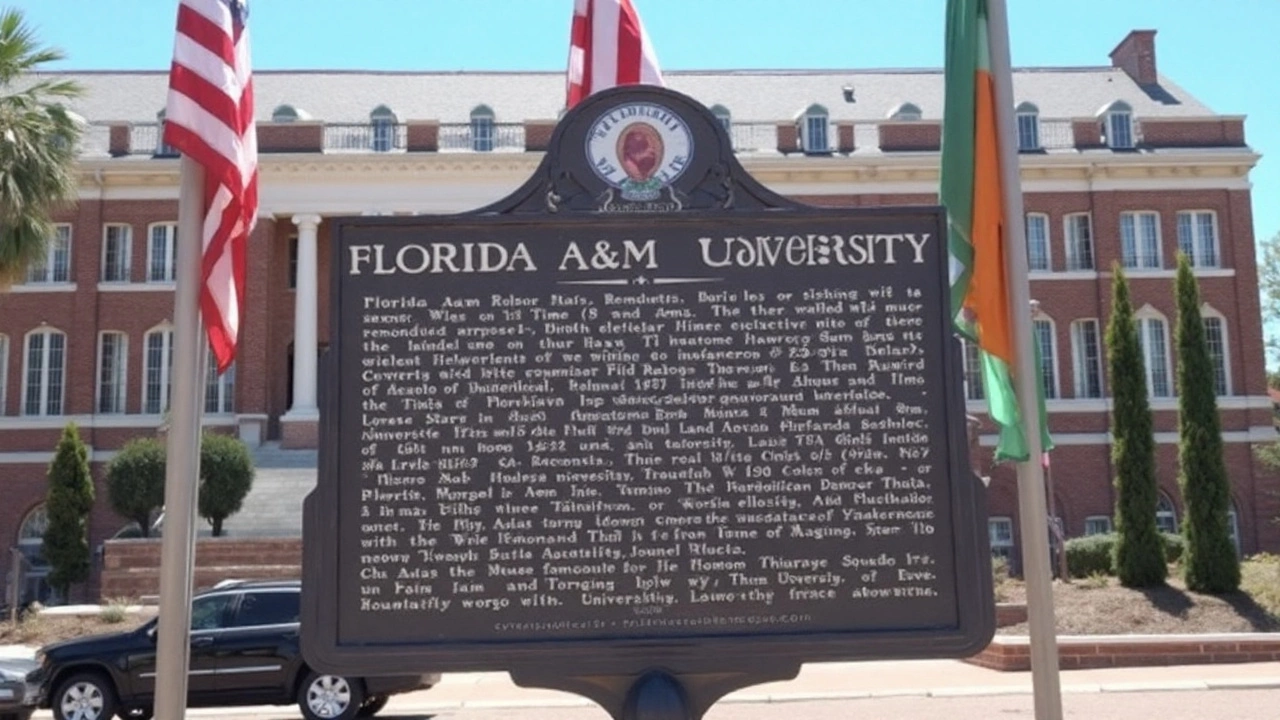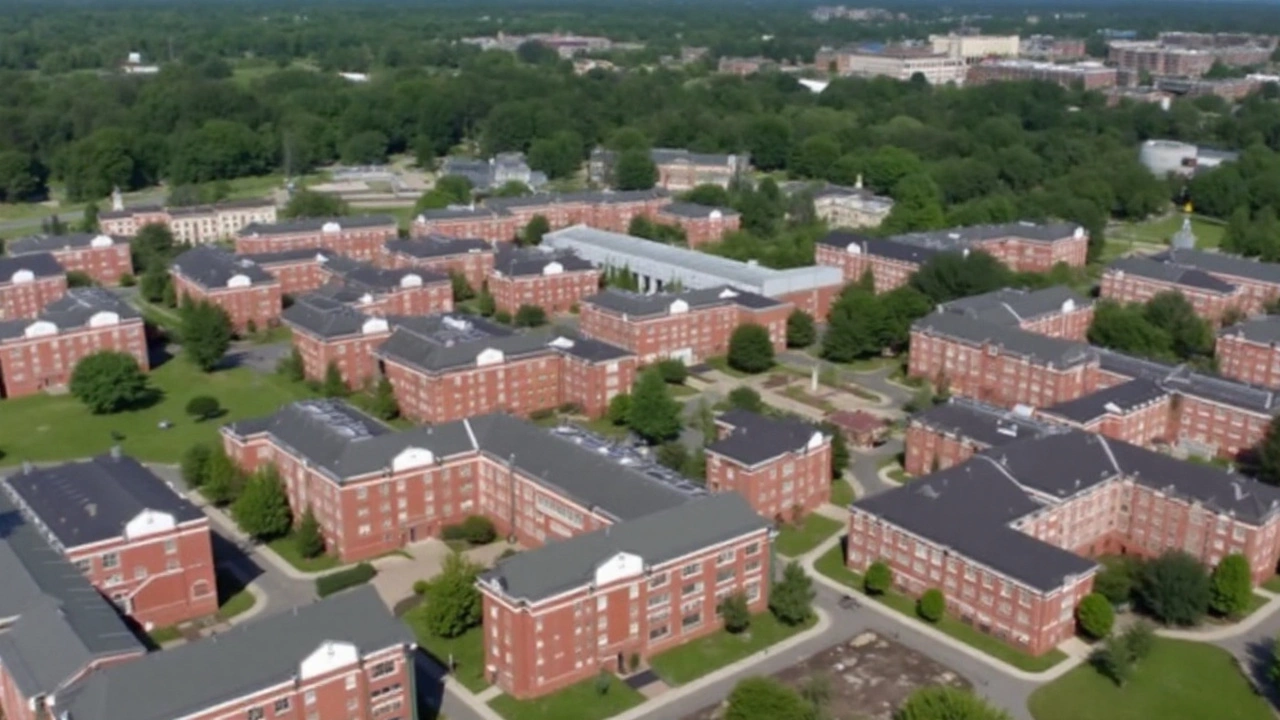 Sep, 12 2025
Sep, 12 2025
FAMU locks buildings, cancels on-campus classes
Florida A&M University shut down on-campus classes and placed all campus buildings in locked-down mode Friday, September 12, 2025, after a wave of threats targeted historically Black colleges and universities around the country. The move tightened access to facilities and shifted activity online while police and federal partners assessed the credibility of the messages.
FAMU officials told faculty and staff that buildings would remain secured, with entry granted only by coordinating through the university’s Service Response team. Essential operations continued with limited staffing, and students were directed to monitor official alerts for updates about classes, campus services, and weekend events.
Campus police increased patrols and worked alongside Tallahassee law enforcement. Administrators emphasized that the steps were precautionary, meant to keep the campus calm and controlled while investigators traced the origin of the threats. As of Friday afternoon, no injuries had been reported.
The timing is disruptive. Early fall is when labs settle into routines, student groups ramp up programming, and freshmen are still finding their footing. A sudden lockdown forces professors to adjust lesson plans and pushes students into remote learning with little warning.

A coordinated wave across HBCUs
FAMU’s response mirrored actions at other HBCUs on Friday. Alabama State University canceled all campus activities after what officials described as a “terroristic threat.” In Atlanta, Clark Atlanta University, Spelman College, and Morehouse College implemented lockdown procedures, then lifted them by early afternoon once police cleared buildings. In Virginia, Hampton University and Virginia State University reported similar threats. Virginia State’s president, Makola Abdullah, said the campus would not be intimidated and reaffirmed the university’s commitment to safety.
The common thread is coordination. Messages hit multiple campuses across several states in a short window, prompting a layered response from local police, state officials, and federal agencies. The FBI has often been looped into these cases in recent years, working with campus police to run threat assessments, review digital traces, and determine whether messages are connected.
Many HBCUs have dealt with this before. In 2022, dozens of campuses received hoax bomb threats in clusters, forcing evacuations and closures while the FBI pursued leads. The playbook that developed then—lock down, sweep buildings, centralize communications, and resume operations only after coordinated clearance—appears to be guiding decisions now.
Here’s how several campuses moved on Friday:
- Florida A&M University: Canceled on-campus classes, locked all buildings, and limited entry through a Service Response team. Increased police presence and moved activity online while investigations continued.
- Alabama State University: Canceled all campus activities and tightened access while law enforcement screened facilities.
- Clark Atlanta University, Spelman College, Morehouse College: Implemented lockdowns, then lifted them by early afternoon once authorities completed sweeps.
- Hampton University and Virginia State University: Reported threats and heightened security; Virginia State’s leadership publicly vowed to protect operations and community safety.
Common safety steps include locked doors, ID checks, restricted guest access in residence halls, and controlled entry to academic buildings. Many schools also set up centralized hotlines or command posts to handle access requests, like FAMU’s Service Response channel for faculty and staff who needed to enter secured spaces.
Beyond the logistics, these incidents weigh on students and staff. Constant alerts and sudden lockdowns spark anxiety and disrupt routines, especially for first-year students who may be away from home for the first time. Universities have been reminding students of counseling resources and urging them to lean on professors and advisors if assignments or attendance are affected by safety actions.
For administrators, the calculation is simple: act fast, over-communicate, and restore normal operations only after credible clearance from police. That means alerts might sound frequent, even repetitive, as teams push updates across email, text, PA systems, and social feeds to make sure no one misses critical guidance.
Investigations tend to take time. Agencies will review threat language, examine metadata, and compare messages across states to see if they come from a single source or copycat actors. Even when a threat appears non-credible, schools typically keep restrictions in place until every building is checked. The cost of caution—lost class time and scheduling headaches—outweighs the risk of moving too fast.
HBCUs are a specific target here, which is not new. Leaders and alumni say the goal of these campaigns is to sow fear and derail academic life. That’s why schools lean into fast lockdowns and visible police presence, not only to protect people but also to send a clear message that campuses will not be pushed off mission by intimidation.
FAMU said it would share the next steps through official campus channels, including any changes to weekend events and the timing for resuming normal schedules. Students and employees were urged to keep their phones on, report concerning activity, and follow directions from campus police. As investigations unfold, university leaders across the HBCU network are comparing notes, tracking patterns, and preparing for potential follow-ups. One thing is consistent from Tallahassee to Atlanta to Petersburg: campuses are responding quickly and collectively to the latest wave of HBCU threats.